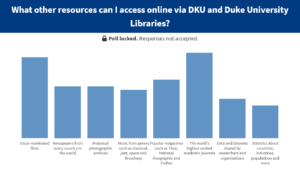by Marjorie Mitchell
Research Librarian, UBC Okanagan Library
I’ve been thinking about mentors and mentorship in the field of librarianship, broadly, including research mentors. A quick search on a popular search engine for “Canadian librarian mentoring program” brings back about 27,500,000 results, which shows clearly I’m not the only one thinking about mentors and mentoring programs. A quick skim of the titles confirms what I had suspected: there are many nuances to different types of mentoring, and mentoring can happen at many different times in a person’s career.
I don’t know whether I can add anything particularly wise, or insightful to the scholarly conversation occurring around librarian mentorship, but I can definitely articulate some questions and musings.
The peer-reviewed literature covers a wide range of topics from library leaders as mentors, to mentorship as a leadership development tool, to peer-mentoring as a method to increase retention within the profession. Anyone seeking to either modify an existing mentorship program or to develop a mentoring program where none exists does not need to go it alone. Why aren’t there more programs to “mentor the mentors” akin to “train the trainer” programs and workshops? I have seen written guidelines, but haven’t participated in any program to help me, as a mentor, develop.
I observed that, often, library literature speaks about library leaders as mentors. This is something I am wrestling with, not only from my own experience, but also on a more pragmatic level. When I entered the profession roughly 15 years ago, I was not offered formal “mentoring.” Instead, I did have a number of meetings with one of my directors who critiqued different aspects of my work. I strongly suspect this director thought they were mentoring me, but I didn’t feel like I was growing into my profession. I felt like I was being evaluated and found wanting, and my experience was not unique (Harrington & Marshall, 2014). I found the informal conversations with my work colleagues far more useful and far less intimidating. In addition to this, I’m curious as to why we think our library leaders have the time, expertise, or capacity to mentor. They already have a plate full of commitments in their role as leaders. Managers, however, should be provided with supports to allow them to mentor more junior managers. Again, I don’t think managers should be mentoring those they supervise because of the implicit and explicit evaluative role they play.
Personally, I believe there is a very fine line between mentors and friends. Perhaps this is a distinction that fades over time. I think all formal mentoring programs should have times by which the relationship, as a formal, mentoring relationship, ends. However, informal mentoring can and does continue after a program ends, in some cases. I think as long as the relationship doesn’t devolve into one of manipulation and abuse, there isn’t anything I can identify as unethical in the migration of a mentoring relationship into a friendship.
I am turning the idea over in my mind that we shouldn’t be looking for or working with mentors from within our own organizations. I am wondering whether there isn’t a place for cross-institutional agreements to allow, and recognize, mentors from one institution mentoring people from another institution. I participate in a mentoring program organized by my provincial library association, BCLA, which has allowed me to share my experiences with both new librarians, and library workers new to BC.
When it comes to research mentorship, or mentoring people who are growing their research agenda, often the expertise doesn’t exist within an individual’s organization. The Canadian Association of Research Libraries (CARL) Librarians’ Research Institute is an amazing immersive experience for librarians wanting to expand their research and build their research confidence. BC is also home to a one-day program called ReAL, Research in Academic Libraries, that is helping librarians create links and find mentorship wherever they are in their research skill development.
Perhaps, there is no one mentor model, but a patchwork of models that people need to tap as they make their way from student, to rookie, to mid-career, to nearing retirement.
When I am offering suggestions, I almost always end with a statement that releases people from any obligation to use my suggestions or follow my advice. I explicitly state that while I may sound prescriptive, at the end of the day, if I sparked a new idea that was completely outside the realm of what I said, then I’m happy to have served that role for them. This also holds true for all that I’ve written here.
Reference
Harrington, M. R., & Marshall, E. (2014). Analyses of Mentoring Expectations, Activities, and Support in Canadian Academic Libraries. College & Research Libraries, 75(6), 763-790. doi:10.5860/crl.75.6.763
This article gives the views of the author(s) and not necessarily the views of the Centre for Evidence Based Library and Information Practice or the University Library, University of Saskatchewan.





 Jessie Loyer is Cree-Métis and a member of Michel First Nation. She is a liaison librarian at Mount Royal University in Calgary, a guest on Treaty 7 and Blackfoot territory. Her research looks at Indigenous perspectives on information literacy, supporting language revitalization, and creating ongoing research relationships using a nêhiyaw minâ otipêmisiw concept of kinship.
Jessie Loyer is Cree-Métis and a member of Michel First Nation. She is a liaison librarian at Mount Royal University in Calgary, a guest on Treaty 7 and Blackfoot territory. Her research looks at Indigenous perspectives on information literacy, supporting language revitalization, and creating ongoing research relationships using a nêhiyaw minâ otipêmisiw concept of kinship.